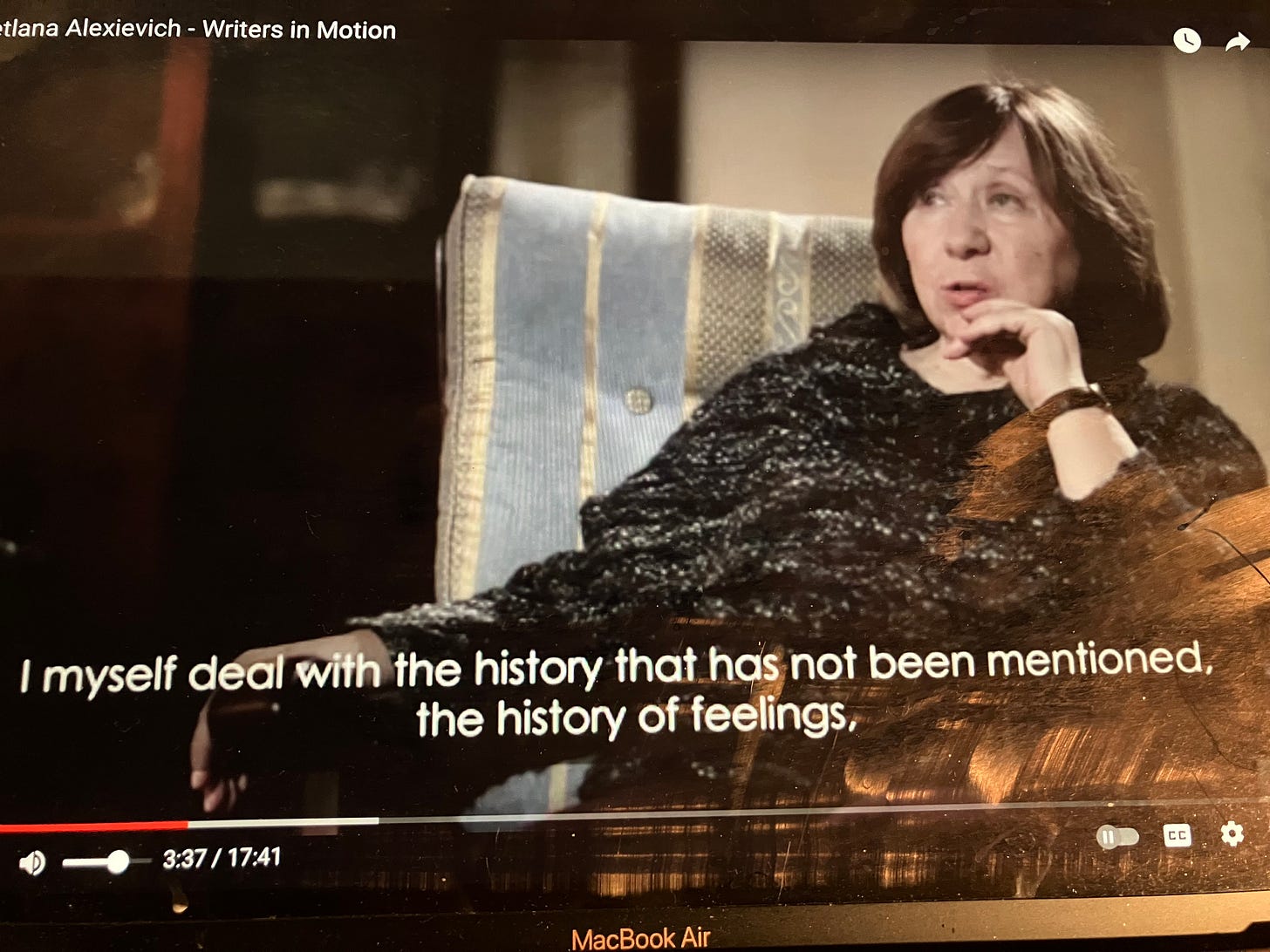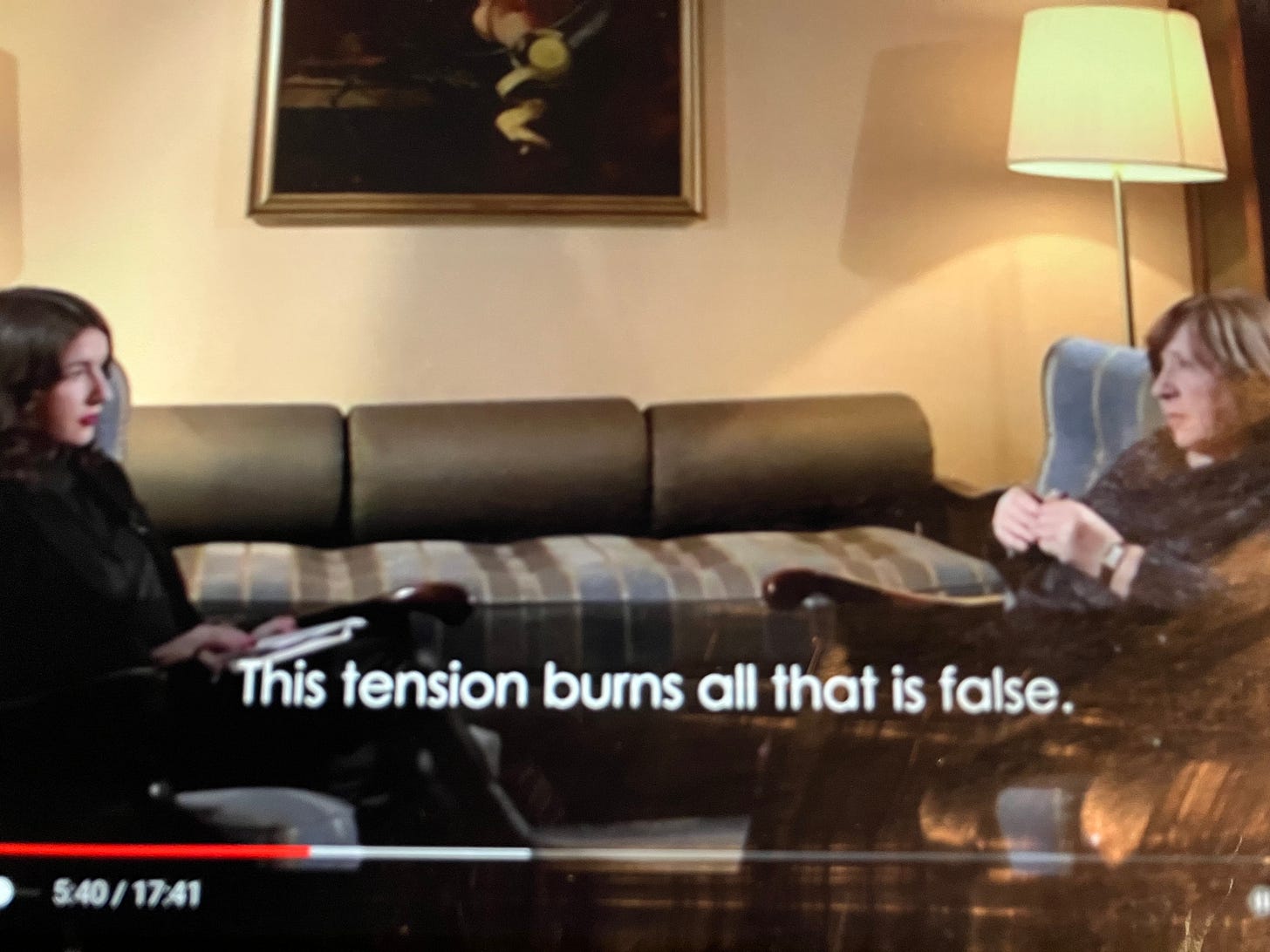The De-Voicing Of Journalism Has Reduced It To A Wasteland Of Propaganda: Svetlana Alexaevich Bears No Responsibility For Its Downfall
She Listened To Stories Of Grief, Loss, Love, Trauma, and Ordinary Life, From WW2 to Chernobyl, And Let The Voices Be The Story
“I've been searching for a literary method that would allow the closest possible approximation to real life. Reality has always attracted me like a magnet, it tortured and hypnotized me, I wanted to capture it on paper. So I immediately appropriated this genre of actual human voices and confessions, witness evidences and documents. This is how I hear and see the world – as a chorus of individual voices and a collage of everyday details. This is how my eye and ear function. In this way all my mental and emotional potential is realized to the full. In this way I can be simultaneously a writer, reporter, sociologist, psychologist and preacher.”
—Svetlana Alexaevich
Her work will take your breath away; Her work is to allow you to listen to human voices, and that’s all, that’s it; Belarusian investigative journalist, essayist, and oral historian, Stevlana Alexaevich. She was one of a small handful of “journalists” to ever receive the Nobel Prize in literature, in 2015, and it’s an indication of our poverty mentality that in all our endless moo-ing about journalism, her name, in my experience, precisely never comes up. One hears all kinds of names of much younger journalists who have attracted cult followings. But the art form—and it is one—is rooted in the lost art of listening, and I reject any journalist who is a poor listener.
There is never a true story that is told outside of the resonance of the human voice. Keep your documents, your online searches, and even your insights. Where are the voices, of other people, just speaking freely? They’re the sulphur in the soil.
A long time ago, I was a journalist of human voices—I collected them. Back then, you met your “sources” (who were really so much more) face to face. You recorded the conversation, you transcribed it carefully, then you put those voices, unedited, on the page. Today’s journalism is largely voiceless, as we have stopped listening, as a culture. My own journalism has also gone almost voiceless, because I can’t re-create the climate that existed before the Godforsaken internet. And to be honest, transcribing is very labor intensive. Very.
I rarely fall in love with machines but it has happened.
I loved, and lost, somehow, my father’s tabletop,( broadcast quality) Marantz, which accompanied me on all my major interviews. I think it was stolen; I will never get over its loss. When, together, we went to meet Pete Townshend, in 1993, at New York’s Royalton Hotel, it stopped functioning, from all the pent up emotions we both had about this interview. Pete snapped his fingers into the Marantz’ microphones a few times, and it started up again.
I would like to see the mighty Alexaevich turn up in Israel and Gaza, and begin to record the voices. With no spin, no attitude, no preconceived positions, we would trace our way to what we all call “truth,” but readily swap for partial propaganda.
The human voice is the only thing that is worth anything, in the entire, blasted and battered field of journalism. Notice how, on TV networks, the one thing their multi-million dollar budgets do not allow for are actual people who live in the regions we like to think we know so much about. Instead, we get the canned voices of the think tank class, the political class. Our malnourishment grows, in tandem with our engulfing ignorance about what real people experience beyond the agenda-driven headlines.










This rings so true to me. I've always found my speech to be too raw and real, people are not able to handle it. Thank goodness you tell it like it is. Appreciate the truth barrier!
She is wonderful. Bummer about the little Marantz - i remember those well. Bit of an aside, but I met Pete in 1993 also! We had a nice chat. The guitar he signed is still one of my faves. The story, the journey and the feeling is what mattered. If you are so inclined: https://www.kingtone.com/how-i-met-pete-townshend-part-i/